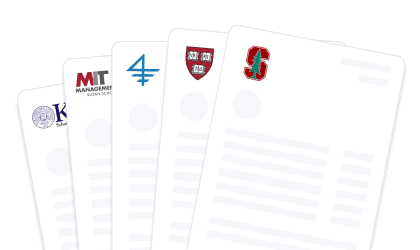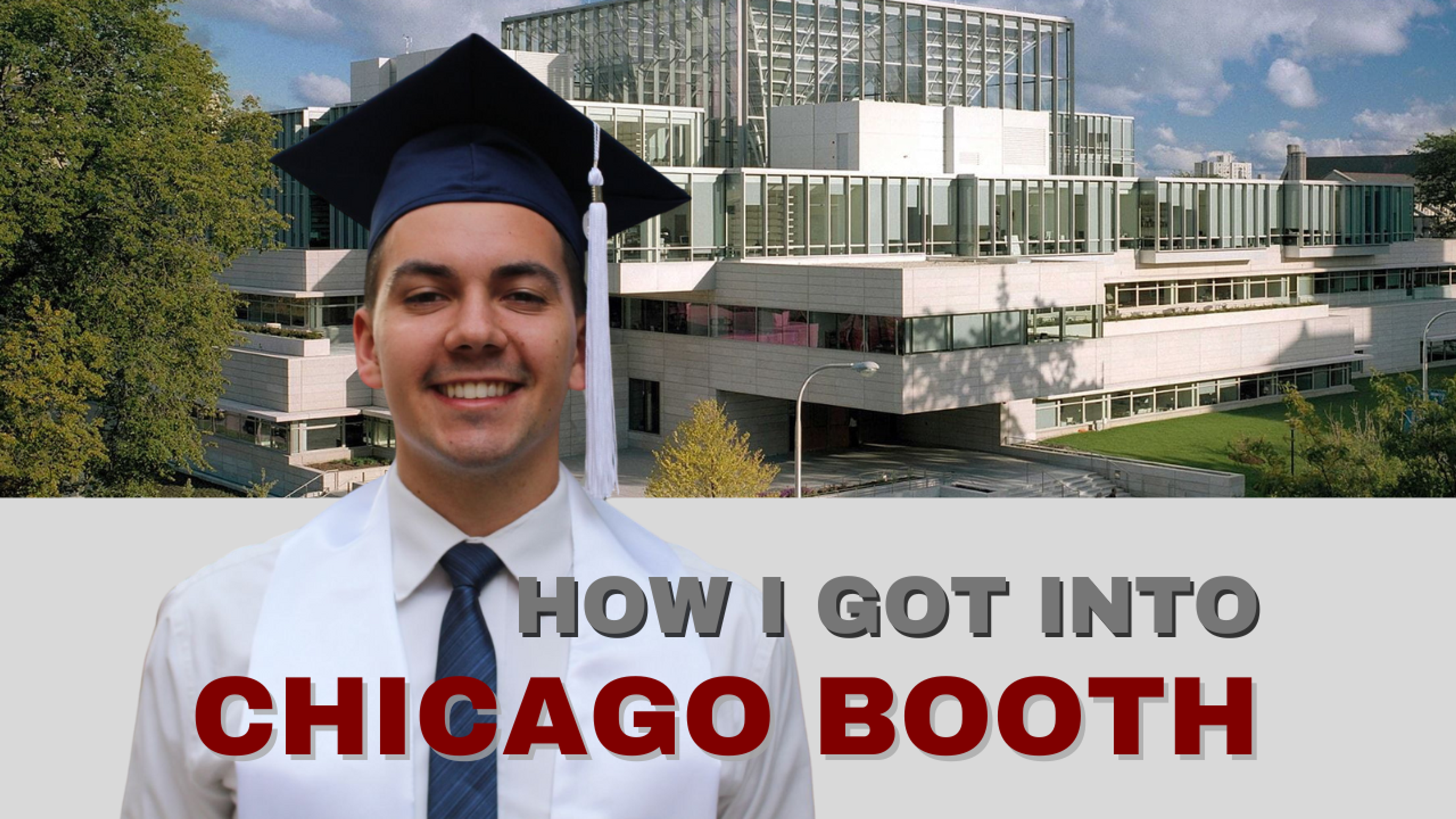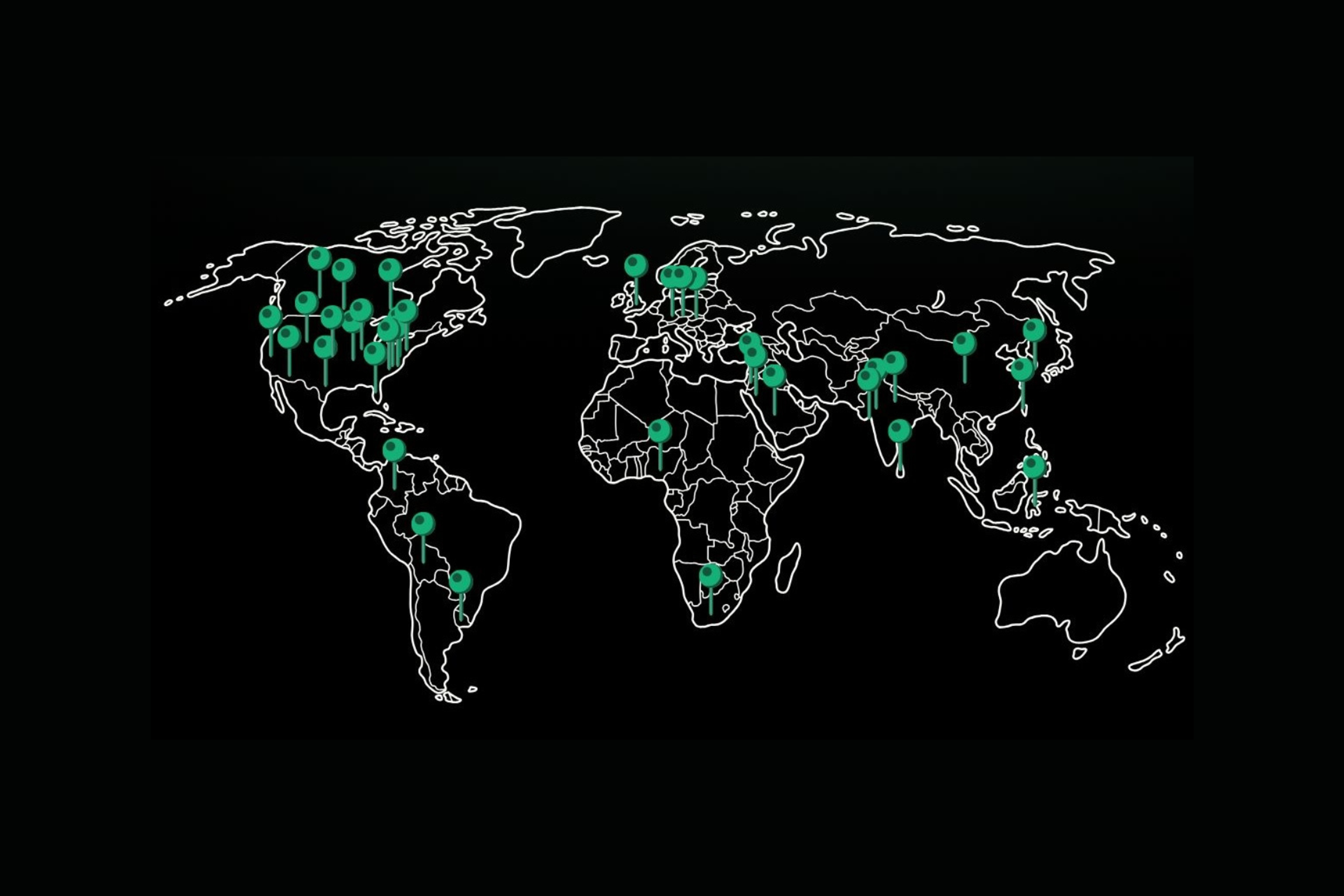No One from My Hometown Went to GSB – Here’s What I Did
Ben L., an expert MBA coach, outlines how he got into Stanford GSB from a policy and consulting background and offers his top tips for other aspiring business school candidates.

By Ben L.
Stanford GSB & HBS Specialist | 300+ M7 Admits | Top Coach | Essay Expert
Posted June 13, 2025

Join a free event
Learn from top coaches and industry experts in live, interactive sessions you can join for free.
Around four months from the date I sent in my applications was the first time I considered going to business school. The Mayor of Chicago made a surprise announcement that he would not be running for re-election and the administration would naturally be turned over, so I thought I’d give things a look.
I’d heard of HBS and a few other east-coast schools from some people I worked with, but my parents had zero connections, and no one from my hometown of Floral Park had ever been to Stanford (or any of the mainstream programs that I could tell). I didn’t know what the GMAT was, or why anyone would feel compelled to balance working full-time with taking practice exams for some ostensibly patronizing test that seemed intent on reminding me getting your syntax right was the meaning of life.
In short, I had no idea what I was doing and needed some points of orientation if I wanted a chance of approaching this process the right way. Particularly for those who don’t have fifteen guideposts and understand the savvier elements of business school applications before they have their driver’s license, here are a few tips to ramp up quickly and give it your best shot:
1. Sponge from people who’ve been through the process.
Particularly if you were in somewhat of a time crunch as I was, keep one ratio in mind at all times: Hours that improve your likelihood of admission: Total hours invested
Yes, this kind of ratio can extend to plenty else in life, but with the seemingly interminable business school application process, keeping that ratio as close to 1:1 will be well-correlated with your sanity. Let’s start with where not to start.
Reading online blogs and articles (except this exact piece of course) is simply not the most time-efficient method of learning what you need to know. It’s safe and easy, so it’s often the first place you’ll go. But if you engage in ~advanced~ googling for the same keywords I did, you’ll probably end up finding a heaping pile of unhelpful fluff. There’s a piece on the kid from GSB who founded 11 startups before the age of 5; the pre-ordained HBS alum who nailed it at McKinsey and couldn’t help but go back; the inspired banker at Wharton who found a PE shop with the perfect “cultural fit”. There are 350,000 articles on how to do the GMAT (my advice: just take some practice tests and spend some extra time on areas where you’re getting stuff wrong), a host of slick-sounding recommendation letter guides and 5-10 million hours of online webinars with admit stories of every conceivable school-candidate combination.
But 99% of that will not make a meaningful difference. Why? None of it is tailored to you. One thing we know for sure is that it’s very likely none of those humans had any clue who you were when they put that content together. The only way you’re going to improve your useful hours to hours spent ratio is by ignoring most of the noise and staying focused.
My answer on how to begin is to (a) make it known that you’re going through the process and (b) get on the phone and call people. Get a list of your target schools, do some brief digging on what each school is known for (a couple of hours per school at most), and get on the phone with three types of people: (1) alumni, (2) current students and (3) friends or colleagues also going through the business school process. You want to talk to alumni to understand how they have (or haven’t) seen the long-term value of their time at a given MBA program. Current students offer a pulse of what’s what on campus, the hallmarks of the school, and how their recently articulated motivations for going are shaking out (hint: they almost always change in some major way). People in your immediate network know you better, and therefore offer a good perspective on what schools might fit well with your profile and interests.
Two natural objections inevitably crop up from the above. First, what’s the harm of putting in days of upfront research to make sure you know every square inch of the school before getting on the phone? Well, because you won’t. The internet offers an illusion of comprehensiveness and avoids the risk of talking to someone and not knowing everything. Half the stuff I see schools market to the general public is useless, and plenty of the core elements of a place like GSB are hardly mentioned. The worldwide web can only take you so far, and can also certainly take the life out of the process and waste a huge chunk of your time and energy.
The second objection – “But, I don’t know anybody.” I was completely ignorant of the process when I started, but I had two main people help me. The first was a good friend I knew from my previous job who was finishing up round one apps as I was setting up for what I learned was round two. The second was someone who had gotten into HBS at my new job and had gone through the process the year before. I got on the phone with some other former friends and colleagues who also gave me helpful takes, but I’d credit those two individuals with 75% of my practical understanding of the process and some simple strategies to knock it out. You don’t need to speak to everyone who’s ever been to business school—one or two people can take you much of the way.
If no one in your immediate professional network knows anything or is applying themselves, you’ll have to work a bit harder—though not that much harder. Do some quick searches on LinkedIn to see if you’ve missed anyone (though please don’t send 700 cold emails to alumni without some sort of connection). Let it be known to your friends and other people you trust that you’re seriously looking at certain schools. The Kevin Bacon effect always takes hold. There’s a 50% chance of someone sharing a birthday with only 23 people in a room. Do the work, start now, and you’ll find a handful of people who can help.
2. Stop thinking – just write.
As someone who loves writing and jumps at pretty much any opportunity to do so, I found myself weirdly blocked when I sat down to do these essays. One of my degrees was in philosophy – shouldn’t I crush the “what matters most and why” essay? By the time I’d gotten down to what is only a couple of pages of writing, my head had been polluted with thoughts of: “What are they looking for?”; “What should my story be?”; “What can and can’t I say?”
These thoughts are garbage. In no way do they help, and they’re the worst kinds of thoughts because they not only throw you off the mark, they stop you from doing anything at all. Even a veteran wide receiver won’t come down with a pass if he turns his head to look where to run before securing the catch. Trying to take your experience and force-fit it into some imagined (and likely inaccurate) construct of what admissions counselors are looking for is a fool’s errand. And it will sound to them exactly as you’ve written it – forced. As soon as your mind begins going down a path like this, stop, and remind yourself it won’t help.
If you need to, talk to a friend or get an editor’s help to simply put those initial thoughts on paper. Write anything before worrying about anything resembling a final product. Even Michelangelo has a series of unfinished sculptures that are only “emerging” from marble; you almost never know what you’ll create until you begin.
Specifically for folks who struggle with writing and/or may not have the resources to hire an editor, anyone can write like they’re talking to a kindergartener. And anyone can write out answers to questions like this:
Who are the most important people in your life? Why?
What’s the biggest thing to happen to you this year? The last 5 years? Ever?
What do you care about? What made you care?
The first answers can be “my wife/husband”, “landing an exciting new job” and “making the world a better place through XYZ.” Take 30 minutes, come back to it, and add a layer. Give your first stab at the “why” behind each. Then ask your friends and family what they think your answer might be – or simply ask the same questions of them. Worst case, you’ll end up in a meaningful conversation.
Once you’ve gone a bit deeper and have an initial mock-up, think about talking to a professional editor or two who doesn’t know you as well, but is seasoned in teasing out the details and tying them together into a coherent narrative. The biggest thing to remember is that this isn’t anywhere near as easy as it sounds, and the process of semi-self-evangelization can feel strange and unnatural. In fact, it might be odd if you don’t find this unnatural to some significant degree, which points to one last piece of advice…
3. Don’t kick yourself – this process is uncomfortable and embedded with contradictions – it’s not you.
It cannot be emphasized enough that a process where you’re required to perpetually sell yourself to a bunch of vague, prestigious institutions is not normal. I found it borderline nauseating. Sitting with my laptop at some nondescript café trying to unpack my life story felt like the instantiation of a rejected New Yorker cartoon. Coupled with the possibility that some random admissions reader might simply have a bad day and dismiss everything I’d written over their own lukewarm coffee, sometimes I just had to put everything down.
Applying to MBA programs is strangely both entering a detached machine of review-interview-admit/reject and a deeply personal exposition of who you are. It demands total honesty and yet, the word on the street is that everyone plays up their experience 15-20% (NB: if you claim to be some wunderkind and none of your references mention that $150M venture you “spearheaded”, you probably won’t look great). Each school asks you to develop a wholly unique perspective on “why them” while asking basically the same questions and offering you products of considerable similarity. You’re told it’s insanely hard to get into a number of programs, then read a Poets & Quants article about some kid who got into each of the top 7 programs while still in undergrad.
Forget the noise. Stay in your lane. Articulate what you care about, why you care, and your best formulation of how you’ll bring those passions to bear in years to come. As you start to feel these innately contradictory thoughts creep in, remember that most of what “people are saying” is completely irrelevant to your specific situation. If you’re a kid from a random place who wants to go to a very not-random place like Stanford, you can’t spend days at a time conjuring up reasons why that’s the case or getting frustrated that you can’t hop on the line with a bunch of Bay-Area startup buddies. You simply need to buckle down, maximize the resources at your disposal, and stay grateful for what you do have.
Final thoughts
In summary, take a math/reading test; write two essays totaling ~1200 words; get a few references from your past jobs. None of this is complex on its face (don’t look to your med-school friends for sympathy), but the pitfalls that riddle this process entail a slew of psychological gymnastics many aren’t fully anticipating. Doing quality work, being a decent person, and building meaningful relationships in the years before you apply to any kind of program are what will set you apart. To stay centered, (1) get the advice of those who’ve done this before, (2) push yourself to simply start each piece of the application, and (3) give yourself a break as to how unbecoming this process ultimately is. As someone who was caught off guard by the whole nature of this and managed to end up somewhere phenomenal for a couple of years, keep these three things in mind to remain oriented – and your work will speak for itself.
PS. Interested in working together on your MBA application? I'm a coach on Leland; click here for my coaching profile.

Written by Ben
5.0
(154)
• Stanford GSB Alum, Class of 2021 -- see relevant background & experience below: • Coaching | Advised 250+ admits into Stanford GSB, HBS, Wharton, Kellogg, MIT Sloan, INSEAD, Haas, and more (see ~100 Leland reviews), while teaching multiple courses through Leland • What I'm Doing Now | Based in NYC, building a publication 'Staying Human', working on a stealth, marketplace startup, coaching and playing chess profssionally, and advising a slate of Seed to Series C startups through Elevate LLC • Public Policy | Prior to Stanford, worked on the Policy Team for the Chicago Mayor's Office under Mayor Rahm Emanuel, focusing on 5G infrastructure policy, criminal justice policy, and citywide corporate/economic development deals • McKinsey | Before policy, worked at McKinsey & Co , with casework focused on job training for the formerly incarcerated and workforce development for at-risk youth • PE / VC / Startup Advising | After Stanford, worked in Bain's Private Equity Group on various due diliegences, managed deals with several venture capital firms, and advised multiple startups on growth and go-to-market strategy • Professional Writing | Speechwriting in public policy & political environments, Lead Editor for Nondisclosure (Stanford GSB's magazine) and Managing Editor for the Stanford International Policy Review • Additional Writing | Crafting op-eds, ghostwriting for major publications, developing a fictional short story collection, policy deep dives, a book on chess applications to life, and application essays of all sorts • GMAT / Test-Taking | Scored in the highest percentile of GMAT test-takers, but more importantly I've honed my ability to help others extrapolate top test-testing strategies in the areas they're weakest • Additional Coaching Details | 5+ years experience working with >750 individuals on essay writing and resume professionalization for top consulting firms, MBA programs, execs, and the broader job market • Interview Training | I was interview-trained with McKinsey, helping me give high-quality mock interviews for MBBs and any MBA program; I've also held 10+ events through Leland on interview prep for McKinsey's PEI and GSB's interview process in particular
Ben has helped clients get into organizations like:
Browse hundreds of expert coaches
Leland coaches have helped thousands of people achieve their goals. A dedicated mentor can make all the difference.
























